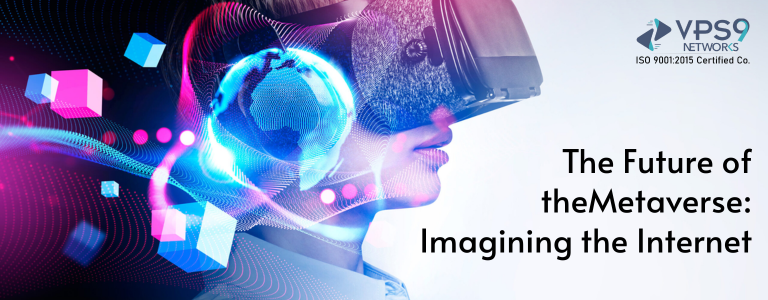Table of Contents
- Introduction
- Understanding the Metaverse
- The Evolution of the Internet and the Rise of the Metaverse
- Key Technologies Driving the Metaverse
- The Role of Big Tech and Startups in the Metaverse
- The Potential Applications of the Metaverse
- Challenges and Concerns
- The Future of the Metaverse: What to Expect
- Conclusion
Introduction
In recent years, the concept of the Metaverse has gained popularity and has the potential to completely change the way we interact with digital spaces. The metaverse, offering fully immersive social spaces and virtual gatherings, is widely seen as the next evolution of the internet. The metaverse has the potential to transform a number of industries, including gaming, e-commerce, real estate, and education, as web-based businesses invest billions in this field.

Understanding the Metaverse
Unlike the traditional internet’s 2D interfaces, the Metaverse delivers a fully immersive 3D experience. With the help of advanced technologies like Virtual reality (VR), Augmented reality (AR), and Artificial intelligence (AI), the metaverse is bringing in a new era of digital interaction where users can interact, transact, and explore limitless virtual worlds. The metaverse is a collective virtual space that combines digital and physical realities, allowing users to interact with each other and digital objects in real time.

The Evolution of the Internet and the Rise of the Metaverse
The internet has seen significant transformation. The internet has evolved from static pages (Web 1.0) to interactive platforms (Web 2.0) to Web 3.0—a fusion of decentralization, AI-driven automation, and immersive experiences. At the centre of this development is the Metaverse, which provides a smooth transition between digital and real-world interactions and presents users and companies with previously unheard-of chances for distant collaboration, entertainment, and trade.

Key Technologies Driving the Metaverse
- Virtual Reality (VR) and Augmented Reality (AR): These technologies provide immersive environments, enabling users to engage in hyper-realistic digital worlds.
- Artificial Intelligence (AI): AI enhances personalization, content creation, and automation, making interactions smarter and more efficient.
- Blockchain Technology: Ensures secure transactions, digital asset ownership, and decentralized economies, fueling the growth of virtual real estate and NFTs.
- High-speed 5G Connectivity and Cloud Computing: These enable real-time rendering, creating a frictionless experience for users worldwide.
The Role of Big Tech and Startups in the Metaverse
Tech giants like Meta, Google, Apple, and Microsoft are shaping the metaverse’s future with AI-driven assistants and digital ecosystems. Innovative applications centered on virtual commerce, Decentralized finance (DeFi), and AI-powered social interaction are being developed by businesses in between.Startups experimenting with decentralized platforms often rely on scalable infrastructure like Linux VPS Hosting to power their immersive and high-traffic applications. The evolution of the metaverse and its accessibility for consumers and businesses will depend on the cooperation of large tech and up-and-coming players.
The Potential Applications of the Metaverse
- Social Interaction: Digital avatars, immersive social spaces, and AI-powered networking are making virtual communities more dynamic than ever.
- Education: Metaverse-based universities, VR training, and interactive classrooms are revolutionizing education.
- Workplace Evolution: Virtual offices, collaborative workspaces, and decentralized companies are redefining traditional work environments.
- Gaming and Entertainment: AI-generated storytelling, play-to-earn economies, and hyper-realistic virtual worlds are elevating digital entertainment to new levels.
- Healthcare: The metaverse is revolutionizing telemedicine, mental health therapy, and AI-assisted medical training, improving accessibility and efficiency.

Challenges and Concerns
Metaverse has a number of challenges in spite of its potential. Because huge amounts of personal data are gathered and exchanged online, privacy and security are vital concerns. solid foundations are required for digital identity authentication and ownership rights in order to guard against fraud and provide user protection. To build a secure and welcoming metaverse, ethical issues including digital addiction, misinformation, and cybercrime must be addressed. When traditional employment positions move toward digital economies, new skill sets and workforce adoption may be necessary, potentially leading to financial shocks.
The Future of the Metaverse: What to Expect
The metaverse appears to be on its way. We can anticipate more integration into everyday life as technology expands, with decentralized governance systems, AI-powered customisation, and increased realism. Businesses will use the metaverse to increase sales, marketing, and client interaction, generating completely new sources of income. Virtual real estate will grow rapidly as more people and brands invest in digital assets. Despite ongoing difficulties, the metaverse is poised to revolutionize how we communicate, collaborate, and consume content in the digital age.
Conclusion
The metaverse is more than just a buzzword; it represents the next frontier of the internet. With immersive digital experiences, decentralized economies, and AI-driven interactions, the metaverse is unlocking new possibilities for industries worldwide. As we navigate this digital transformation, businesses, governments, and consumers must collaborate to ensure a secure, inclusive, and innovative metaverse that benefits everyone. The future is being built today, and the metaverse will be a defining force in shaping the next digital era.



